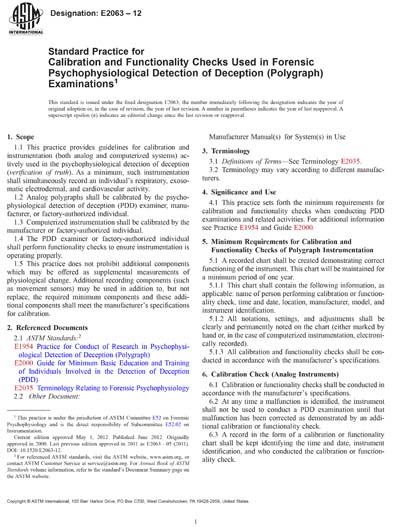Historical
ASTM E2063-12
Standard Practice for Calibration and Functionality Checks Used in Forensic Psychophysiological Detection of Deception (Polygraph) Examinations
1.1 This practice provides guidelines for calibration and instrumentation (both analog and computerized systems) actively used in the psychophysiological detection of deception (verification of truth). As a minimum, such instrumentation shall simultaneously record an individual's respiratory, exosomatic electrodermal, and cardiovascular activity.
1.2 Analog polygraphs shall be calibrated by the psychophysiological detection of deception (PDD) examiner, manufacturer, or factory-authorized individual.
1.3 Computerized instrumentation shall be calibrated by the manufacturer or factory-authorized individual.
1.4 The PDD examiner or factory-authorized individual shall perform functionality checks to ensure instrumentation is operating properly.
1.5 This practice does not prohibit additional components which may be offered as supplemental measurements of physiological change. Additional recording components (such as movement sensors) may be used in addition to, but not replace, the required minimum components and these additional components shall meet the manufacturer's specifications for calibration.
Content Provider
ASTM International [astm]






